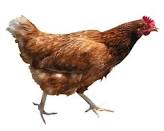Agronigeria
The Central Bank of Nigeria has so far given out N16.4 billion to 78,000 farmers. This disbursement was done through its recently launched Anchor Borrowers’ Scheme.
This was made known at the 326
th meeting of the Bankers’ Committee – a policy making body for banks, in Lagos, yesterday. The disbursement includes the acquisition of hectares of land for farming and the receiving of about N210, 000 by 78,000 registered farmers.

The Director of Banking and Supervision, CBN, Tokunbo Martins, who addressed finance correspondents at the end of the meeting, said that plans are now in top gear to replicate this in other regions, particularly in Ebonyi and Anambra states soon.
She said the committee had resolved to support the anti-corruption effort of the government and the other reforms aimed at bringing stability to the economy.
Martins also disclosed that access to financial services has been made easier and cheaper with the licensing and approval of the super-agents that would distribute banking services at lesser cost, with mandates to reach the most interior communities in the country.
Meanwhile, the President of the Manufacturers Association of Nigeria (MAN), Dr. Frank Jacobs, said CBN’s renewed focus on sector has improved the lots of his members, as the foreign exchange allocations have been raised up beyond complain.
According to him, it is commendable that the governor kept to his promise to manufacturers after a meeting with him and can boldly say that it is no longer what it used to be.
Jacobs said that while there are gaps left in the sector’s demand, the response by CBN in prioritising and increasing foreign exchange allocation to manufacturers is now keeping them engaged and productive.
The Managing Director, Fidelity Bank Plc, Nnamdi Okonkwo, assured that CBN was still working out the modalities for the disbursement of accumulated funds from the reduced cash reserve requirement (CRR), which banks are eager to commence action on as soon as the directive is released.
During the
flag-off of the scheme last year, Governor, Central Bank of Nigeria, Godwin Emefiele said that it was designed to create economic linkages between farmers and processors, not only to ensure the output of rice and wheat, but also to bridge the gap between production and consumption.
“Over 200,000 rice and wheat farmers will benefit from the scheme ranging from N150,000 to N250,000 to assist in procuring necessary agricultural inputs,” Emiefele noted.
